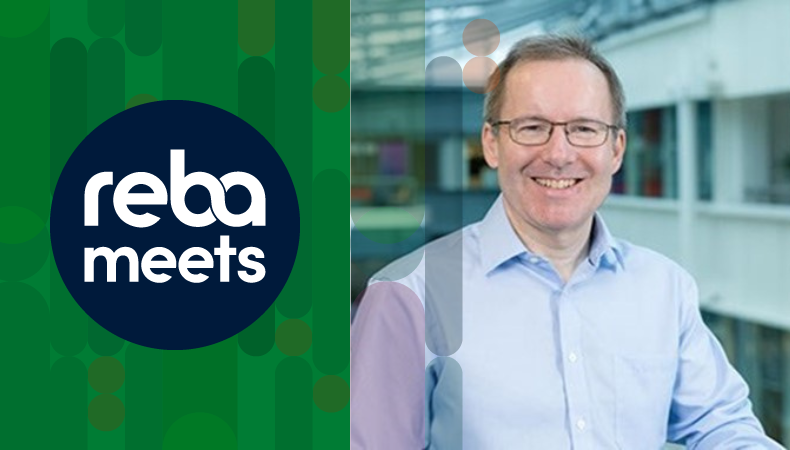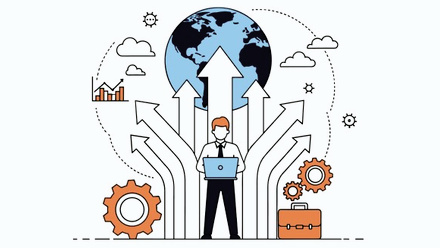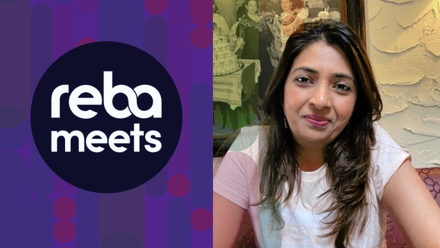Inside GSK’s quiet revolution in global benefits, with Andrew Bates
When Andrew Bates joined what was then SmithKline & French Laboratories in the late 1980s, he couldn’t have known he’d stay for more than three decades. Nor would he have predicted that the company around him would change so radically, so often.
Today, as VP of global benefits and employee health and wellbeing at GSK, Bates oversees a reward strategy that spans 75 countries, multiple benefit systems, and a workforce of over 74,000 people.
But longevity isn’t the most remarkable part of his story. What stands out is how he’s navigated GSK’s evolution.
Bates has overseen mergers, a major demerger in 2022 which created Haleon, a new consumer health company, and the rise of AI and shifting employee expectations. Throughout all this change, Bates and his team have been quietly transforming how reward is designed, delivered, and experienced at GSK.
"Each merger and the demerger felt like joining a new company," he says. "We weren’t just changing logos — we were building new cultures, performance systems, and reward structures from the ground up.
"With the demerger we had to think through every detail— including how we separated and split GSK shares into new GSK and Haleon shares, how we communicated with employees and shareholders, and how we maintained trust through complexity. It was a moment where reward became business-critical.
"There’s no playbook for a demerger like that. We had to rely on expert advice, of course, but also make a lot of judgement calls internally. The success of the process was down to collaboration and clarity at every level."
Developing a future-focussed health benefit offering
Most people know GSK for its research, development, and manufacturing of medicines and vaccines. Its purpose, to unite science, technology and talent to get ahead of disease together, underpins each wing of the business, including benefits.
"We’re a healthcare company, so of course we take health and wellbeing seriously," Bates says. "But it’s also about consistency and clarity. The more global and cohesive we can make our offering, the stronger our employee value proposition becomes."
GSK operates in over 75 countries, making global consistency a significant challenge.
Bates’s focus over the last few years has been to develop a better local offering for its health benefits while harmonising employee experience across its workforce.
Recent initiatives include the rollout of Thrive Global, a wellbeing platform and nudge for financial education. Bates estimates that over 90% of GSK’s workforce is now being provided with global wellbeing tools.
Yet not every benefit is about return on investment (ROI), he argues.
"There are two lenses we apply: how many people it will benefit, and what does it say about us as an employer.
"That’s why GSK introduced global minimum standards for parental and caregiver leave and continues to explore scalable wellbeing solutions that align with its mission in preventative health. We can’t be everything to everyone. But we can be intentional — and consistent."
Bates has also played a major role in transformation projects, including the set up of shared service hubs in Costa Rica, Malaysia, and Poland. More recently, GSK launched a strategic global capability centre in Bangalore.
"We’re now in a position to manage benefits regionally and globally, not just locally," he says. "That changes everything."
From generalist to reward specialist
Bates’ career started in HR as a generalist, touching everything from job evaluation to recruitment and employee relations.
"Not many people at school want to be a HR professional. So I did a history degree, which I enjoyed, but didn’t really lead to anything. Then I explored a whole range of different roles, occupations and graduate schemes and became interested in the whole process of recruitment."
After years in front-line and international HR roles, Bates transitioned into reward in 2015 after a colleague recommended his analytical mind would be a good fit for compensation.
When Emma Walmsley became GSK’s CEO in 2017, she ushered in a more externally focused, performance-led culture, leading to big implications for reward.
Bates says: "It felt like the right fit [to move into reward] and within a year, I was helping reimagine our entire performance system under a new CEO.
"We moved away from traditional ratings and restructured our bonus and recognition frameworks to encourage outward-looking, market-competitive behaviours," he says.
The shift was not just structural, but cultural. GSK now offers sharper incentives for overperformance and clearer consequences when targets aren’t met, which Bates argues has changed how people understand success and their individual contribution to it.
Leveraging technology for an improved employee experience
During his 30 years at the company, Bates has witnessed a transformation in employee experience. When he first joined the company, colleagues were referred to using their second names and wore business suits as standard.
Today’s employees could not be more different, and with that comes a change in workplace culture and employee expectations. Employees now expect the same ease and flexibility in their workplace benefits as they do from their favourite consumer apps.
Bates says: "People want to choose what matters to them, at their stage of life, and access it whenever they need it. Our goal is to bring that experience into the workplace."
GSK has responded with investments in employee-facing tech. That includes 'GiGi', its in-house, AI-powered digital assistant that helps employees navigate everything from benefits queries to leave policies. It’s part of a wider push to make systems seamless, scalable, and 24/7, especially important in a business with global operations.
Meanwhile, more traditional benefit schemes are being enhanced through digital-first, flexible offerings. Electric vehicle schemes, tax-advantaged share plans, and a growing roadmap for personalisation are all on the table.
"Despite everything we already offer, people still want more choice," Bates says. "That’s what we’re working on."
Lessons for the future
After decades in HR and reward, some might opt for a career change, or at least a change in organisation, so what has kept Bates motivated at GSK all of this time?
"It’s the scale of the impact," he says. "Knowing that the work we do touches tens of thousands of employees and indirectly contributes to a mission that changes lives through healthcare – that’s what drives me."
Looking ahead, his priorities include continuing to evolve flexible benefits, preparing for the EU Pay Transparency Directive, and embedding AI into both employee experience and internal systems.
His advice for others in the field? "Stay curious. Stay connected. Talk to employees, talk to peers. The world is changing fast. You need to stay open to what’s next."
And if you’re not a digital native? "That’s okay," he says. "Find someone who is and let them play. Explore together. That’s how you grow."







